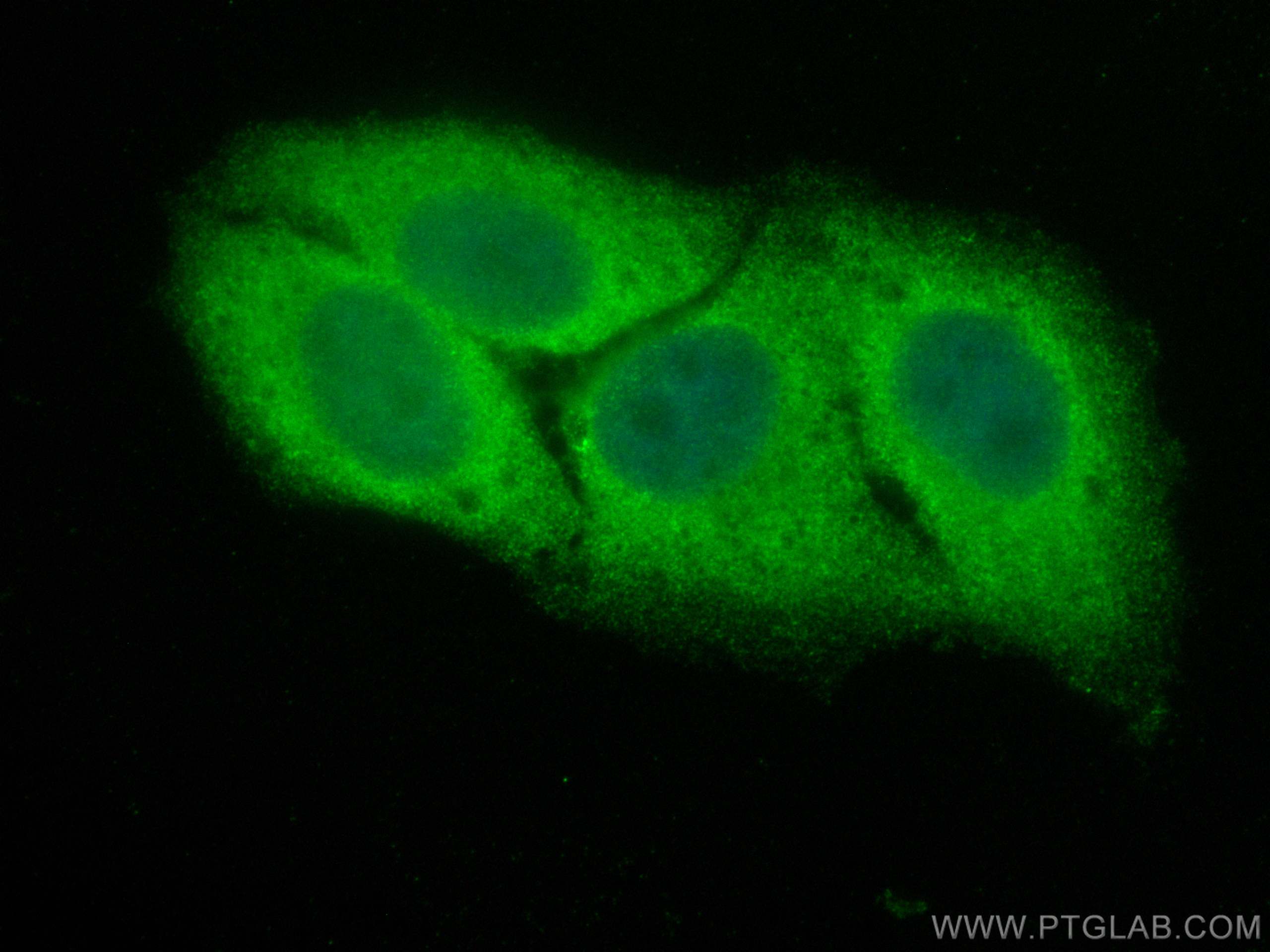Tested Applications
| Positive IF/ICC detected in | HepG2 cells |
Recommended dilution
| Application | Dilution |
|---|---|
| Immunofluorescence (IF)/ICC | IF/ICC : 1:50-1:500 |
| It is recommended that this reagent should be titrated in each testing system to obtain optimal results. | |
| Sample-dependent, Check data in validation data gallery. | |
Product Information
CL488-19218 targets SKIL in IF/ICC applications and shows reactivity with human samples.
| Tested Reactivity | human |
| Host / Isotype | Rabbit / IgG |
| Class | Polyclonal |
| Type | Antibody |
| Immunogen |
CatNo: Ag5282 Product name: Recombinant human SKIL protein Source: e coli.-derived, PET28a Tag: 6*His Domain: 335-684 aa of BC059386 Sequence: YLGTPEEKKLKIILEEMKEKFSMRSGKRNQSKTDAPSGMELQSWYPVIKQEGDHVSQTHSFLHPSYYLYMCDKVVAPNVSLTSAVSQSKELTKTEASKSISRQSEKAHSSGKLQKTVSYPDVSLEEQEKMDLKTSRELCSRLDASISNNSTSKRKSESATCNLVRDINKVGIGLVAAASSPLLVKDVICEDDKGKIMEEVMRTYLKQQEKLNLILQKKQQLQMEVKMLSSSKSMKELTEEQQNLQKELESLQNEHAQRMEEFYVEQKDLEKKLEQIMKQKCTCDSNLEKDKEAEYAGQLAELRQRLDHAEADRQELQDELRQEREARQKLEMMIKELKLQILKSSKTAKE Predict reactive species |
| Full Name | SKI-like oncogene |
| Calculated Molecular Weight | 77 kDa |
| Observed Molecular Weight | 77 kDa |
| GenBank Accession Number | BC059386 |
| Gene Symbol | SKIL |
| Gene ID (NCBI) | 6498 |
| RRID | AB_3084023 |
| Conjugate | CoraLite® Plus 488 Fluorescent Dye |
| Excitation/Emission Maxima Wavelengths | 493 nm / 522 nm |
| Form | Liquid |
| Purification Method | Antigen affinity purification |
| UNIPROT ID | P12757 |
| Storage Buffer | PBS with 50% glycerol, 0.05% Proclin300, 0.5% BSA, pH 7.3. |
| Storage Conditions | Store at -20°C. Avoid exposure to light. Stable for one year after shipment. Aliquoting is unnecessary for -20oC storage. |
Background Information
SKIL, also known as SnoN, is a mediator of the transforming growth factor-β (TGF-β) signaling pathway and exerts pro-oncogenic activity through inhibiting TGF-β/Smad pathway(PMID: 19114989). SKIL is involved in reduction of autophagy and subsequent tumor cell apoptosis in arsenic trioxide-treated promyelocytic leukemia and ovarian carcinoma. In addition, SKIL may regulate cell division or differentiation in response to extracellular signals.
Protocols
| Product Specific Protocols | |
|---|---|
| IF protocol for CL Plus 488 SKIL antibody CL488-19218 | Download protocol |
| Standard Protocols | |
|---|---|
| Click here to view our Standard Protocols |




